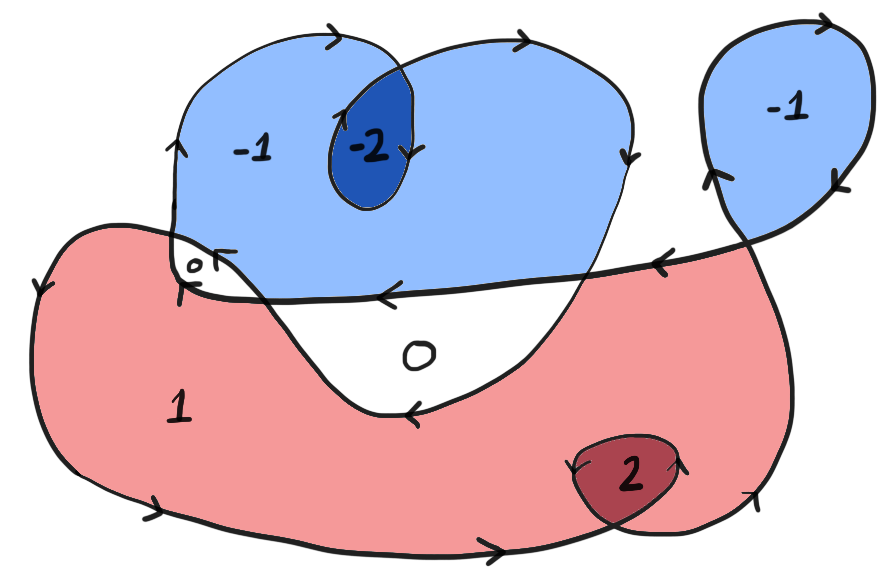
Home | Assessment | Notes | Worksheets | Blackboard
The function $f$ is holomorphic on the domain $\C \setminus \{ 1,-1 \}$. We observe that \[ \wind(\gamma_1,-1) = 1 \qquad \wind(\gamma_2,1) = 1 \qquad \wind(\gamma_3,-1) = -1 = \wind(\gamma_3,1) \] and that all other winding numbers are zero. Thus \begin{align*} \wind(\gamma_1,-1) + \wind(\gamma_2,-1) + \wind(\gamma_3,-1) &= 0 \\ \wind(\gamma_1,1) + \wind(\gamma_2,1) + \wind(\gamma_3,1) &= 0 \end{align*} and Cauchy's theorem for several contours gives \[ \int\limits_{\gamma} f + \int\limits_{\gamma_1} f + \int\limits_{\gamma_2} f = 0 \] with the answer following from rearranging the equation.